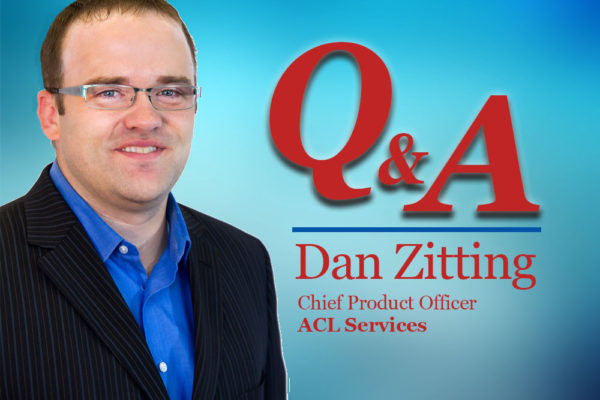with co-author Maia Cogen
Through the first nine months, 2016 has been a busy year for enforcement actions brought under the Foreign Corrupt Practices Act (FCPA) by the Department of Justice (DOJ) and the Securities Exchange Commission (SEC). The number of FCPA enforcement actions brought to date already exceeds the total number initiated in all of 2015. While the sheer number of these actions is noteworthy, the facts and circumstances of each provides valuable insight into the DOJ’s and SEC’s evolving enforcement trends. These trends offer important guidance to questions that covered entities frequently consider.
What does the FCPA Prohibit?
The FCPA was enacted in 1977 and applies to U.S. companies, their subsidiaries, officers, directors, employees and agents. The two primary provisions of the FCPA pertain to anti-bribery and internal controls and accounting.[1] The FCPA prohibits covered entities and individuals from offering or giving anything of value to a government official or to any third party with knowledge (actual or constructive) that the thing of “value” to be offered or given to a foreign government official is for purposes of obtaining or retaining any improper advantage.
Who’s Prosecuting What?
Although the DOJ and the SEC have concurrent jurisdiction to enforce the FCPA, the agencies have continued a trend wherein the DOJ, with its exclusive jurisdiction to bring criminal cases, appears to defer to the SEC’s civil penalty jurisdiction on those FCPA enforcement actions against corporations that are likely to result in relatively low penalties for the companies.[2] On the other hand, the DOJ has been more active in criminally prosecuting individuals, usually senior-level officers and directors, for criminal violations of the Act. Importantly, the DOJ’s declination to prosecute in certain types of enforcement actions may, in the view of many FCPA commentators, likely stem from both the lower burden of proof for the SEC’s civil claims as well as the potential that the DOJ may be more interested in higher-stakes bribery cases, rather than, for example, “books and records” infractions.
What are the Areas of High Risk?
In 2016, DOJ and SEC enforcement trends reflect a focus on both geography and industry. In 2016, enforcement actions appear to be focused primarily on the health care industry as well as bribery claims in China.[3] While the preponderance of FCPA enforcement actions have been focused on China and the health care sector, the government has also continued to bring enforcement actions within the technology sector, as well as actions based on government interactions in both Russia and Latin America.
How is “Anything of Value” Defined?[4]
Commentators point out that the FCPA was originally intended to target and curb attempts to bribe foreign officials with tangible items (e.g., money) and other traditional items that have a quantifiable monetary value, such as expensive gifts and vacations. The DOJ and SEC appear to be expanding what they consider to be “anything of value” under the FCPA in recent enforcement actions. In 2016, enforcement actions reflect a continued expansion of this principle wherein the government has brought actions for what the agencies describe as “intangible benefits.” For example, in an investigation of VimpelCom, an Amsterdam-based telecommunications provider, the SEC brought an enforcement action based, in part, on donations made by VimpelCom to a charity affiliated with a foreign official in Uzbekistan. Similarly, the SEC based its FCPA investigation of Qualcomm in part on Qualcomm’s hiring of children of foreign officials in China. It is not clear, however, the extent to which courts will consistently find FCPA violations based on intangible benefits. By way of recent analogy, in an insider trader case, an area of law with a standard of personal benefit that parallels the FCPA, the United States Court of Appeals for the Second Circuit recently dismissed claims against corporate insiders who only received “career advice,” holding that personal benefit received by an insider must be of a “pecuniary or similarly valuable nature.”[5]
Is Voluntary Self-Disclosure Required to Mitigate Penalties?
In April 2016, the DOJ announced a new and long-awaited FCPA Pilot Program designed to provide transparency into how the agency conducts FCPA investigations, as well as into how companies can better cooperate with DOJ investigations in exchange for a reduction in criminal penalties.[6] Guidance on the Pilot Program states that the agency expects for companies to voluntarily disclose potential violations, cooperate with the DOJ and take actions to ensure there are not future violations. By meeting these three requirements, a company may receive up to a 50 percent decrease in criminal penalties. If a company fully cooperates with the DOJ and takes steps to appropriately remediate violations, the company may still receive up to a 25 percent decrease in penalties, even if the company does not voluntarily self-disclose violations. As has been the case in other contexts, companies will need to continue to carefully consider how self-reporting and cooperation with investigative agencies impact privilege considerations and what will need to be reported given the FCPA’s continued absence of the “materiality” standards applicable to other SEC enforcement actions.
What to Expect Next?
Despite prior authority that suggests that “anything of value” may require pecuniary value, the government brought an action against VimpelCom and, for the first time, used donations to a legitimate charity as one basis for FCPA enforcement against the company. Traditionally, we have seen that the government prefers to follow a consistent pattern in how it addresses FCPA enforcement actions. Based on the government’s novel basis for enforcement against VimpelCom and the government’s tendency toward rulemaking by enforcement, given the dearth of reported case law in this area, we can likely expect to see the government bring more “intangible benefit” cases focusing on charitable contributions made at the request of a foreign government official, facilitation of introductions and other gray areas of interaction between multinational companies and the foreign governments with which they deal.
* * *
These insights from the 2016 trends offer important guidance on how the DOJ and SEC view compliance, cooperation and individual culpability in an increasingly active enforcement environment. Based on these trends, a company can make certain changes to bolster its FCPA compliance program and, if an issue does arise, minimize the penalties of an enforcement action. Some elements of a robust compliance program include coordination between a company’s legal department and financial departments for regular internal FCPA audits in partnership with corporate audit; documented and continuous training of senior officials, HR departments, government relations personnel, community relations and philanthropic staff, particularly in high-risk geographies (the Transparency International Corruption Perception Index (CPI) is a reliable resource for country-by-country corruption indices)[7]; an audit routine that tests both the adequacy of FCPA books and records; and coordination with company M&A teams to include some audit exercises as part of pre-deal due diligence.
[1] The FCPA’s internal controls and accounting provisions apply only to public companies. See 15 U.S.C. § 78m (2012).
[2] Compare Letter from Daniel Khan, Deputy Chief, U.S. Dep’t of Justice, to Luke Cadigan, Esq., K&L Gates, Counsel to Nortek, Inc. (June 3, 2016) available at https://www.justice.gov/criminal-fraud/file/865406/download (Letter describing the DOJ’s decision to close investigation into Nortek, despite acknowledging bribery allegations involving employees of the company’s subsidiary in China), and Letter from Daniel Kahn, Deputy Chief, U.S. Dep’t of Justice, to Josh Levy, Esq., Ropes & Gray LLP, Counsel to Akamai Technologies, Inc. (June 6, 2016) available at https://www.justice.gov/criminal-fraud/file/865411/download (Letter describing the DOJ’s decision to close investigation into Akamai, despite acknowledging bribery allegations involving employees of the company’s subsidiary in China and one of that subsidiary’s channel partners) with Nortek, Inc., SEC Non-Prosecution Agreement (May 3, 2016) available at https://www.sec.gov/news/press/2016/2016-109-npa-nortek.pdf (Non-Prosecution Agreement requiring Nortek to disgorge $291,403 as well as pre-judgment interest of $30,655), and Akamai Technologies, Inc., SEC Non-Prosecution Agreement (May 3, 2016) available at https://www.sec.gov/news/press/2016/2016-109-npa-akamai.pdf (Non-Prosecution Agreement requiring Akamai to disgorge $652,452 and pay pre-judgment interest in the amount of $19,433).
[3] See, e.g., sources cited supra note 1 (SEC enforcement actions related to bribery claims in China); see also SciClone Pharm., Inc., Exchange Act Release No. 77058 (Feb. 4, 201) (cease and desist order against pharmaceutical company), Nordion (Canada) Inc., Exchange Act Release No. 77290 (Mar. 3, 2016) (cease and desist order against a health science production company), Novartis AG, Exchange Act Release No. 77431 (Mar. 23, 2016) (cease and desist order against pharmaceutical company).
[4] The term “anything of value” derives from the statutory text of the FCPA. See 15 U.S.C. §§ 78dd-1, 2.
[5] United States v. Newman, 773 F.3d 438, 452 (2d Cir. 2014).
[6] U.S. Dep’t of Justice, Criminal Divisions, The Fraud Section’s Foreign Corrupt Practices Act Enforcement Plan and Guidance (April 5, 2016) available at https://www.justice.gov/opa/file/838386/download.
[7] http://www.transparency.org/cpi2015#results-table



 John Lewis, Jr. is a partner at Lawrence & Bundy LLC and has over 25 years of broad based experience as a lead trial lawyer in private practice, in-house litigation counsel, including managing the global litigation team of an Atlanta-based Fortune 100 company, conducting internal investigations domestically and internationally and advising corporate board members, executives and senior business leaders. John has served as senior managing litigation counsel, global anti-bribery counsel and global head of diversity and workplace fairness.
John focuses his practice on internal and government investigations, including Foreign Corrupt Practices Act investigations, corporate compliance and commercial litigation, including class action litigation, business bankruptcy/creditors rights/receiverships and diversity consulting.
John led internal and governmental investigations into some of the earliest Sarbanes-Oxley whistleblower claims. He was tapped to serve as his company’s first global anti-bribery counsel responsible for company compliance with the Foreign Corrupt Practices Act, the UK Bribery Act and similar global anti-corruption laws around the world. In this role, John led in-person training, audits and investigations in Asia, Europe, Africa, the Middle East and Latin America, including compliance-related due diligence in international M&A transactions. He also personally advised and updated the board audit committee on these matters.
John honed his trial skills early in his career, serving for over 10 years in private practice as a commercial litigator with emphasis on bankruptcy/creditors’ rights disputes. John then moved into an in-house role with an Atlanta-based Fortune 100 company and for eight years – five as head of litigation – he defended company directors in shareholder derivative cases and advised senior management in all aspects of strategy, leading interviews, defending depositions and managing alternative dispute resolution in class actions, multi-district litigation and related proceedings. He managed the single largest potential litigation exposure in the history of the company, which was a securities class action lawsuit that touched four continents.
John’s diversity consulting practice is unique in that John brings his experience of actually having been a head of diversity for a global company. As global chief diversity officer, he had board-level accountability for all aspects of workplace fairness, including responses to EEOC charges and OFCCP inquires as well as media and related media and reputational concerns. John served as the “voice” and “face” of diversity and inclusion for the company interacting with external constituents, community leaders, insurance carriers, institutional investors and the landscape of workplace, marketplace, community, customers and partners. Through this experience, John brings unique perspective to confidential litigation assessments, corporate diversity compliance reviews, internal legal vulnerability assessments and assisting clients in developing “best practice” benchmarking.
John’s broad based background enables him to bring a solutions-based perspective drawing on a range of legal disciplines and a proven track record of success working not just with lawyers, but with business leaders in public affairs, a public company board of directors, communications, government relations, regulatory affairs and community stakeholders.
John is licensed to practice in Pennsylvania, Missouri, Kansas and Georgia. He can be reached at
John Lewis, Jr. is a partner at Lawrence & Bundy LLC and has over 25 years of broad based experience as a lead trial lawyer in private practice, in-house litigation counsel, including managing the global litigation team of an Atlanta-based Fortune 100 company, conducting internal investigations domestically and internationally and advising corporate board members, executives and senior business leaders. John has served as senior managing litigation counsel, global anti-bribery counsel and global head of diversity and workplace fairness.
John focuses his practice on internal and government investigations, including Foreign Corrupt Practices Act investigations, corporate compliance and commercial litigation, including class action litigation, business bankruptcy/creditors rights/receiverships and diversity consulting.
John led internal and governmental investigations into some of the earliest Sarbanes-Oxley whistleblower claims. He was tapped to serve as his company’s first global anti-bribery counsel responsible for company compliance with the Foreign Corrupt Practices Act, the UK Bribery Act and similar global anti-corruption laws around the world. In this role, John led in-person training, audits and investigations in Asia, Europe, Africa, the Middle East and Latin America, including compliance-related due diligence in international M&A transactions. He also personally advised and updated the board audit committee on these matters.
John honed his trial skills early in his career, serving for over 10 years in private practice as a commercial litigator with emphasis on bankruptcy/creditors’ rights disputes. John then moved into an in-house role with an Atlanta-based Fortune 100 company and for eight years – five as head of litigation – he defended company directors in shareholder derivative cases and advised senior management in all aspects of strategy, leading interviews, defending depositions and managing alternative dispute resolution in class actions, multi-district litigation and related proceedings. He managed the single largest potential litigation exposure in the history of the company, which was a securities class action lawsuit that touched four continents.
John’s diversity consulting practice is unique in that John brings his experience of actually having been a head of diversity for a global company. As global chief diversity officer, he had board-level accountability for all aspects of workplace fairness, including responses to EEOC charges and OFCCP inquires as well as media and related media and reputational concerns. John served as the “voice” and “face” of diversity and inclusion for the company interacting with external constituents, community leaders, insurance carriers, institutional investors and the landscape of workplace, marketplace, community, customers and partners. Through this experience, John brings unique perspective to confidential litigation assessments, corporate diversity compliance reviews, internal legal vulnerability assessments and assisting clients in developing “best practice” benchmarking.
John’s broad based background enables him to bring a solutions-based perspective drawing on a range of legal disciplines and a proven track record of success working not just with lawyers, but with business leaders in public affairs, a public company board of directors, communications, government relations, regulatory affairs and community stakeholders.
John is licensed to practice in Pennsylvania, Missouri, Kansas and Georgia. He can be reached at 








